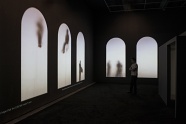Lucy Beech
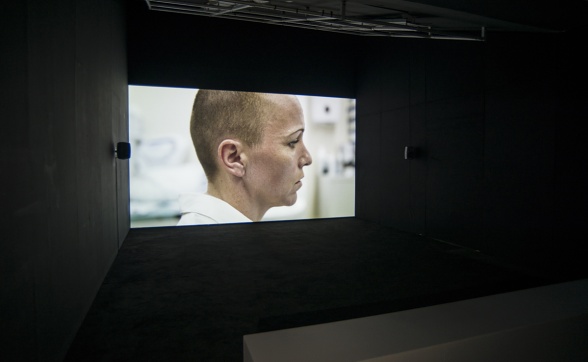
Lucy Beech, Pharmakon, 2016. Installation view at FACT. Photo: Jon Barraclough
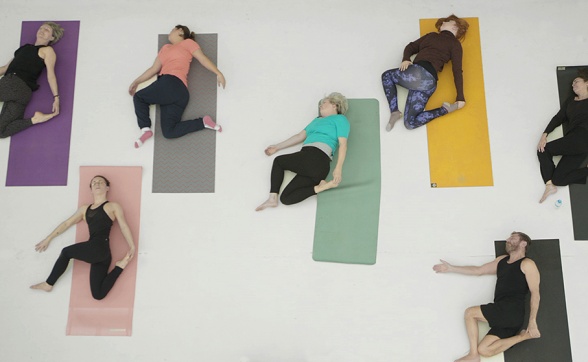
Lucy Beech, Pharmakon (film still), 2016. Image courtesy the artist
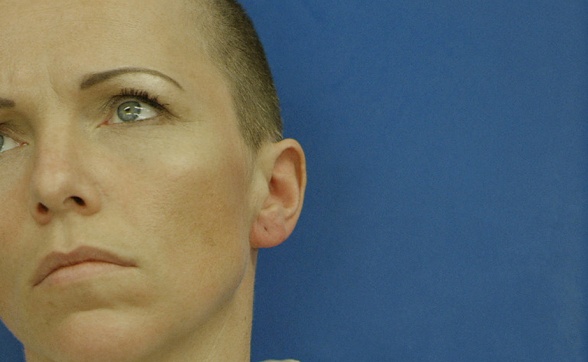

Lucy Beech, Pharmakon (film still), 2016. Image courtesy the artist
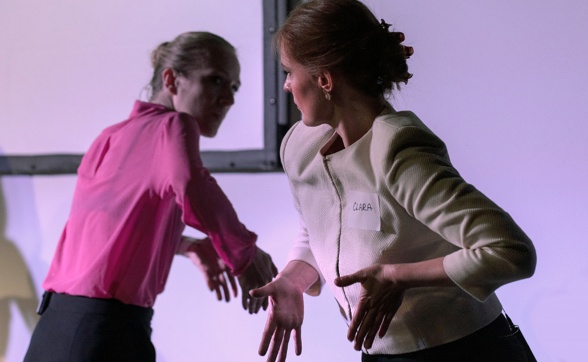
Lucy Beech, Passive Agressive, 2015. Photo by Hugo Glendenning
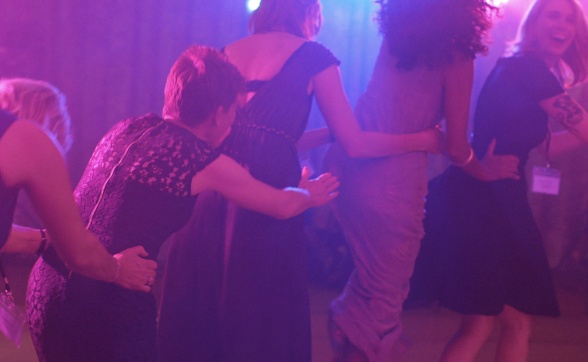
Lucy Beech, Me and Mine, 2015. Film still. Photo courtesy of the artist and Film and Video Umbrella
Lucy Beech, Pharmakon, 2016. Installation view at FACT. Photo: Jon Barraclough
Lucy Beech (b. 1985, Hull, UK) lives in London, UK. Beech’s video and performance works explore ideas around emotional capitalism, interrogating forms of emotional labour that place a premium on interpersonal interaction whilst blurring the boundaries between work and play. Often focused on female group dynamics, her practice uses choreography and disrupted narrative structure in order to explore public intimacy and competitive vulnerability.
Lucy Beech’s new film for Liverpool Biennial 2016, Pharmakon, is an interpersonal drama that explores how disease operates in an era of mass communication. The film focuses on female group dynamics, and how support networks can care for the individual whilst conversely intensifying symptoms. It examines how connectivity in this context can be both illness and remedy, and how diagnosis is dependent on our ability to impose particular narratives on the body. Shot and produced in sites across Liverpool, the screenplay has been developed through the artist’s active engagement with therapy groups, advocacy websites, patient forums, and interviews with clinicians working within the field of delusional infestation. The film is part of the Flashback and Software episodes.
Recent solo exhibitions include James Fuentes, New York, USA (2015); The Tetley, Leed, UK (2015); and the Harris Museum and Art Gallery, Preston, UK (2015). Her work has been included in group exhibitions at the Lisson Gallery, London, UK (2015); and ICA, London, UK (2014). Her work has been screened at Tate Britain, London, UK (2015); CCA, Glasgow, UK (2015); and GAK, Bremen, Germany (2013). She will be the artist in residence alongside her collaborator Edward Thomasson at Site Gallery, Sheffield, UK (2016); other recent collaborative performance work include: Frieze Live, London, UK (2015); and Tent Rotterdam, Rotterdam, Netherlands (2014).
Lucy Beech at Liverpool Biennial 2016
Pharmakon, 2016
HD video with sound
Commissioned by Liverpool Biennial and FACT
Exhibited at FACT
Supported by
Wellcome Trust
Liverpool Biennial
55 New Bird Street
Liverpool L1 0BW
- T +44 (0)151 709 7444
- info@biennial.com
Liverpool Biennial is funded by
Founding Supporter
James Moores
